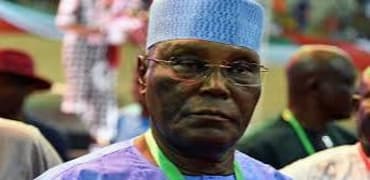IG’s Tenure Sparks Controversy as PSC Retires Senior Police Officers
IG’s Tenure Sparks Controversy as PSC Retires Senior Police Officers
By Achimi Muktar
A fresh storm is brewing in Nigeria’s law enforcement hierarchy as the Police Service Commission (PSC) has ordered the immediate retirement of all senior police officers who have exceeded 35 years in service or turned 60 years old. This move comes amid heated legal and political debates over the tenure extension of the Inspector General of Police (IGP), Kayode Egbetokun, who recently clocked 60.
While the PSC insists that its decision aligns with established civil service rules, senior lawyers, including prominent Senior Advocates of Nigeria (SANs), are divided on whether the IGP’s tenure extension is lawful. Some argue that the Police Act supersedes civil service regulations, while others believe the matter should be tested in court.
In a statement issued by PSC’s Head of Press and Public Relations, Ikechukwu Ani, the Commission explained that it had revisited its 2017 policy that allowed officers to use their date of enlistment instead of their appointment date. This, according to the PSC, contradicted Public Service Rule No. 020908, which mandates retirement at 60 years of age or after 35 years of service—whichever comes first.
“The Police Service Commission rose from its first extraordinary meeting with the approval for the immediate retirement of senior police officers who have spent more than 35 years in service and those above 60 years of age,” Ani stated.
This decision now raises serious questions about IGP Egbetokun’s continued stay in office, with many legal minds weighing in on the legitimacy of his tenure extension.
While some legal experts argue that the tenure extension does not violate constitutional provisions, others insist that the PSC’s decision to retire officers contradicts the extension granted to the IGP.
Kunle Adegoke, SAN, explained that the appointment and reappointment rules allow an extension unless expressly forbidden by law. “If the law does not explicitly prohibit reappointment or tenure elongation, then the general principle is that what is not forbidden is permitted,” he said.
However, he acknowledged that police and military service rules differ from standard civil service regulations, and a court ruling would help set a clear precedent.
Monday Ubani, SAN, former Chairman of the Nigerian Bar Association’s Section on Public Interest and Development Law, took a more definitive stance. He argued that the Police Act overrides civil service rules, stating:
“The Act defines the powers of the IGP and his tenure, and it was amended to ensure that the four-year tenure runs irrespective of age. This means even if the IGP has turned 60, he can continue serving.”
He further emphasized that where there is a conflict between civil service regulations and an Act of Parliament, the latter takes precedence.
Another senior lawyer, Ifedayo Adedipe, SAN, backed the legality of the extension, citing a 2020 law signed by former President Muhammadu Buhari. He dismissed allegations of political manipulation, asserting:
“To the extent that the law was properly passed by the National Assembly and assented to by the executive, the extension is valid. There is nothing unconstitutional about it.”
Beyond the legal debates, some experts warn that the constant rotation of IGPs is undermining the efficiency of the Nigeria Police Force.
Adedipe criticized the short tenures of past IGPs, highlighting how the instability prevents long-term planning and weakens leadership structures.
“One of the things I worry about is this high turnover of Inspectors General of Police—one year, two and a half years, six months. The police cannot develop a strong operational culture if leadership keeps changing so frequently,” he argued.
Comparing Nigeria to the United States, he pointed out that long-serving leaders often define institutional legacies, referencing historical leadership eras like the “Warren Court” or the “Burger Court.”
To ensure stability, he advocated for longer terms for IGPs, suggesting a fixed five or six-year tenure to allow proper assessment of performance and leadership.
With the PSC enforcing retirements and legal experts split over the IGP’s extension, the matter could soon land in court. The decision could set a major legal precedent for future police appointments and tenure regulations in Nigeria.


















